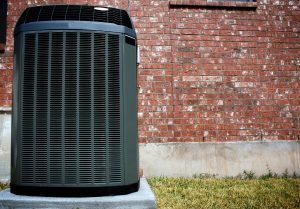 Ideally, you’d never need to replace an air conditioner in the middle of summer. An older air conditioner which needs to be put out to pasture should ideally be replaced in the fall or early spring, when there’s no demand for it and you can proceed carefully with your decisions.
Ideally, you’d never need to replace an air conditioner in the middle of summer. An older air conditioner which needs to be put out to pasture should ideally be replaced in the fall or early spring, when there’s no demand for it and you can proceed carefully with your decisions.
Unfortunately, not every old air conditioner is polite enough to wait until September to break down, and if you’re facing a serious repair call in the middle of a heat wave, it may be more beneficial to simply replace the failing system instead of spending money unnecessarily to prop the older one up.
In the event you need to install a new system in the middle of the summer, speed is of the essence. A lack of air conditioning can turn your home into an oven, and even present a health hazard to sensitive family members. Having said that, the need to move quickly doesn’t preclude a few key steps in determining the right air conditioner for you. Make sure you and your technician follow them closely before performing the installation.
Power Levels Matter
The air conditioner‘s power level covers the cooling power it puts out, and needs to be the first thing you determine when shopping for a new model. Your technician can calculate the proper power levels by performing an audit of your home. That starts with square footage, but can include other elements as well, such as the presence of insulation in your home, and picture windows that might allow a lot of sunlight in. Factoring those details in gives you a figure that you can use to ensure your air conditioner performs as effectively as possible.
Why? Contrary to popular opinion, bigger isn’t necessarily better when it comes to air conditioners. If yours is underpowered, it will run all day without ever getting the home cool, which wastes a great deal of energy. If it’s overpowered, however, something very similar happens: a process known as short-cycling, where the unit cools the home very quickly and shuts down, only to turn back on again a few minutes later as the heat of the day warms the space up. Since air conditioners use more energy starting up and shutting down than they do simply running, that can be just as inefficient. The best power level for your AC follows the Goldilocks Rule: neither too large nor too small, but just right.
Check the Efficiency
Once the power levels have been determined, the next step is to decide how efficient your system should be. Luckily, there’s an easy way to do that. Air conditioners come with a SEER rating, which stands for Seasonal Energy Efficiency Ratio. The higher the rating, the better use the system makes of the energy it consumes. SEER ratings need to be balanced against power levels, which is why you should check it after you’ve determined the proper size. (An undersized unit with a higher SEER rating than a more powerful won’t help you.) With that caveat, you should typically purchase the unit with the highest SEER rating in your price range.
For quality air conditioning replacement in Frisco, TX, call the pros at Hutchins Plumbing & Air Conditioning today!









